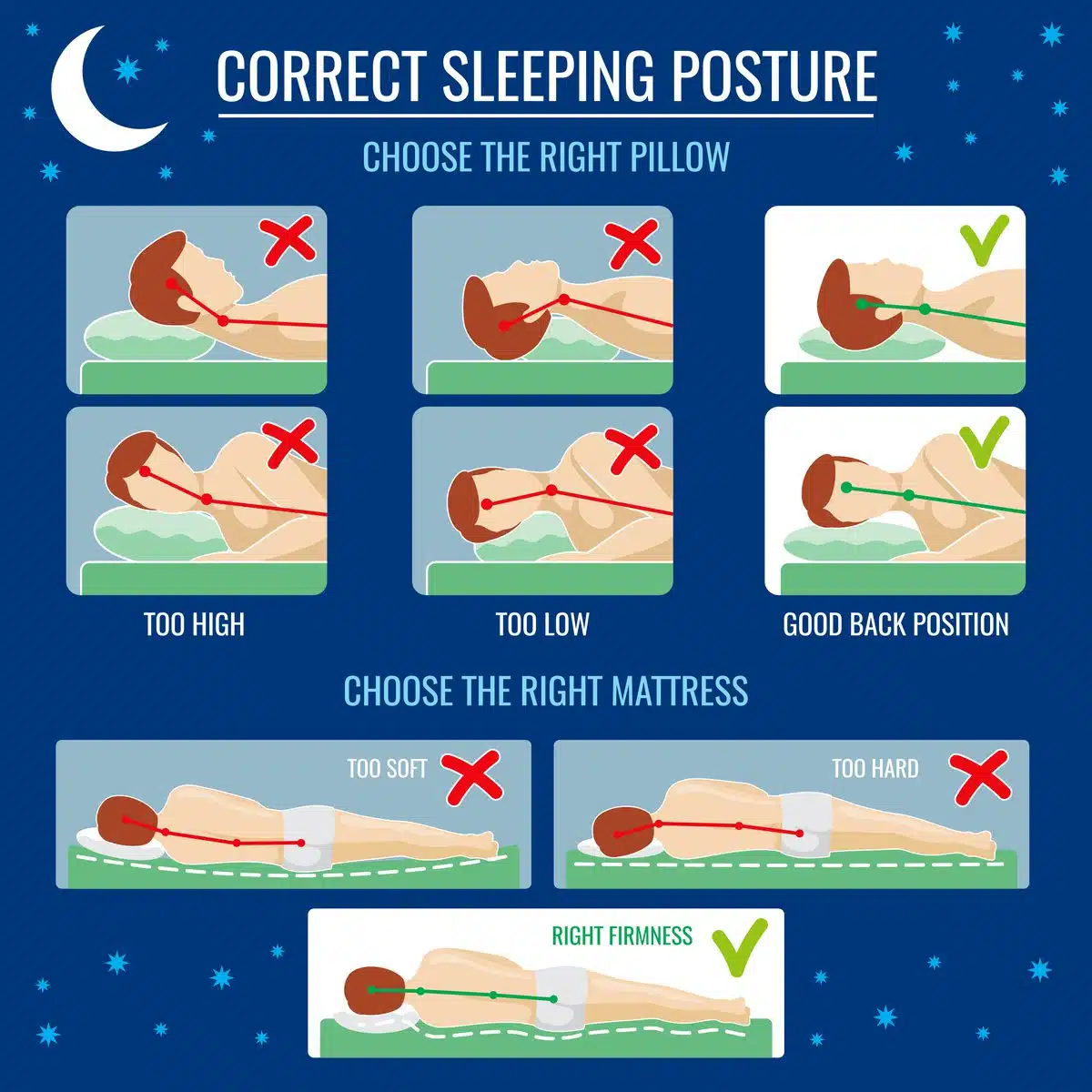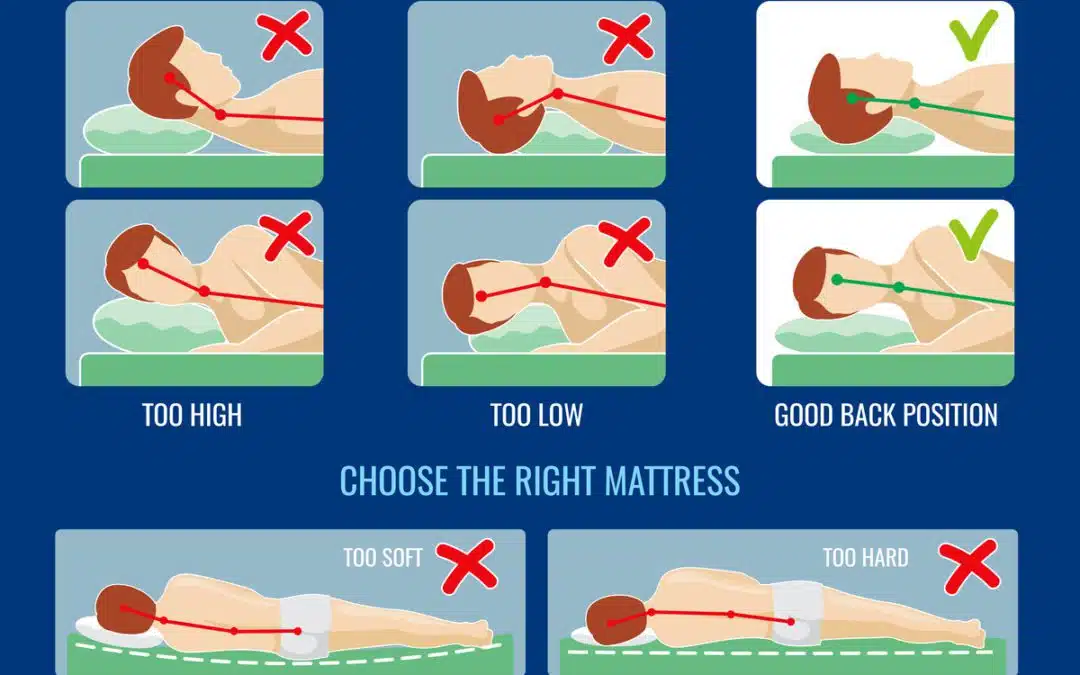Sleep positioning and supports are an important consideration for restful sleep. Experiment with the following options so you can get your best rest.

Mattress & Pillow Support
- Mattress should be firm to prevent sinking, yet soft enough to conform to the normal curves of your spine.
- Pillow should support your neck and allow it to rest in a balanced position. A contoured neck pillow is often a good choice.
- A neck roll may be added for extra support. Consider using a feather pillow with a cervical / towel roll along the length of the pillowcase to support the natural curve of the neck.
Sleeping on your Back
- Pillow under the knees to keep neutral position in the lower back.
- Avoid using thick / multiple pillows under your head.
- Lumbar support or towel roll as needed to support the lumbar spine.
- If you have arm pain, prop a pillow under arm from shoulder to elbow (allow elbow to bend, rest hand on pillow).
Sleeping on your Side
- Pillow should support the head and neck, which may require doubling it if thin or made of feather.
- Keep head and shoulders in line with hips.
- Keep hips bent to less than 90 degrees or bend the top leg and keep the lower leg straight.
- Pillow used between the knees to align the hip and knee.
- If you have arm pain, support arm on pillow propped between arm and rib cage with elbow bent for neutral shoulder position.
Sleeping on your Stomach
- Do not use a pillow under the head.
- Place pillow under lower legs to keep spine in neutral.
- A firm mattress is recommended.
- If you have neck or arm pain, avoid sleeping on stomach.
Previously posted June 3, 2013, updated March 2022


